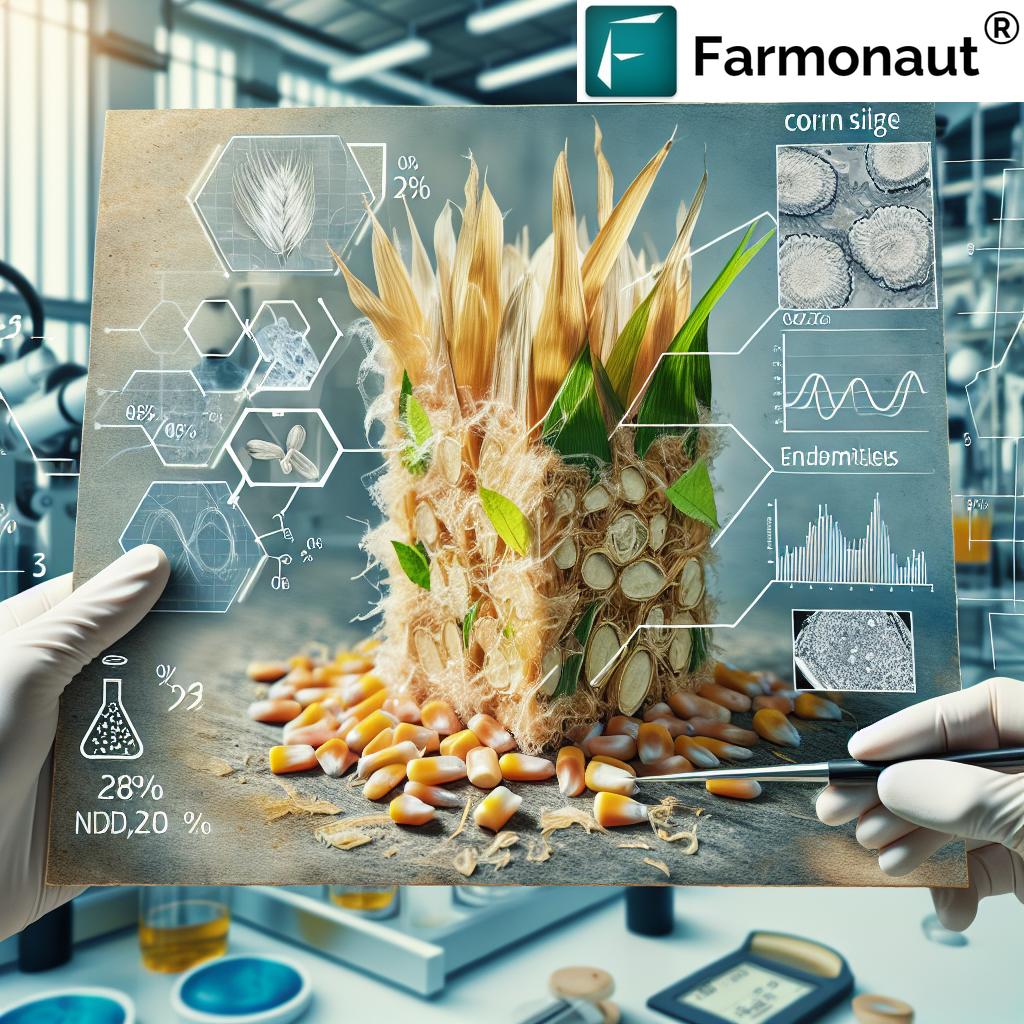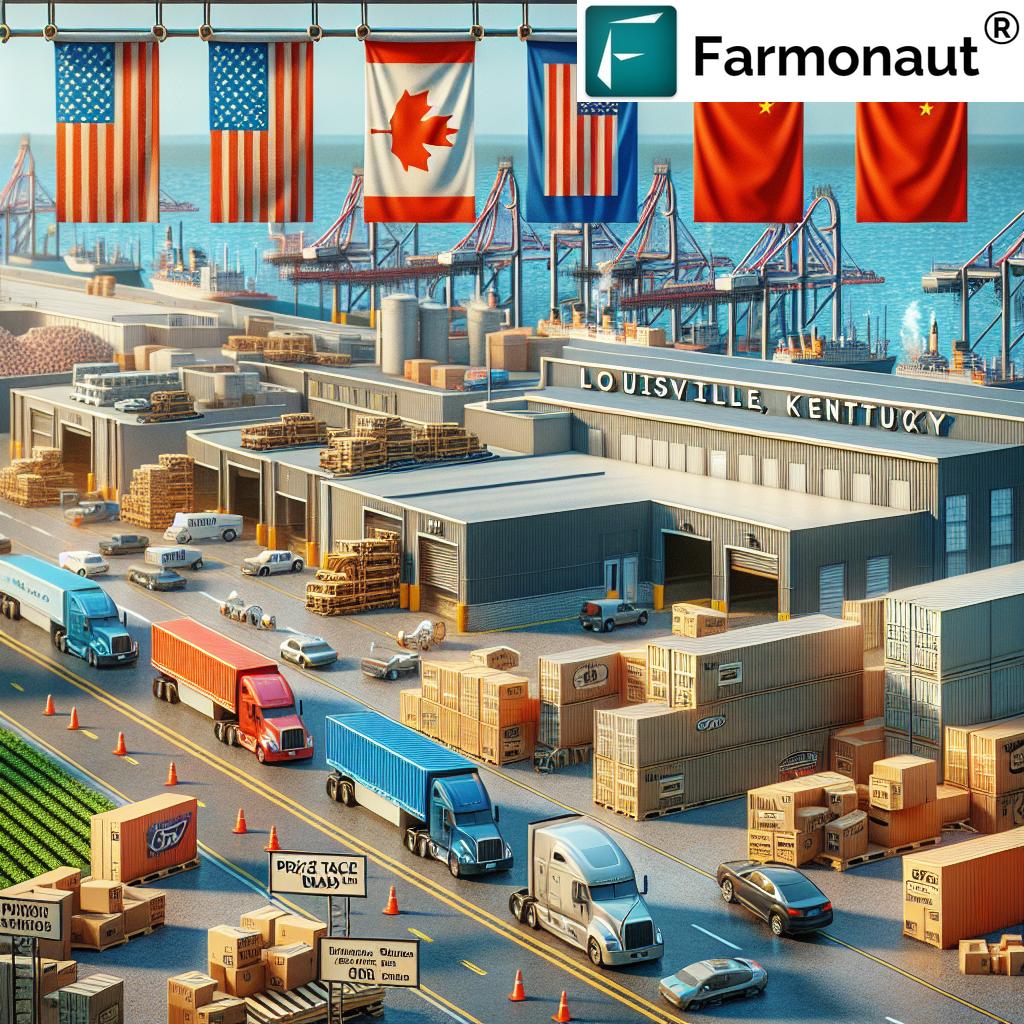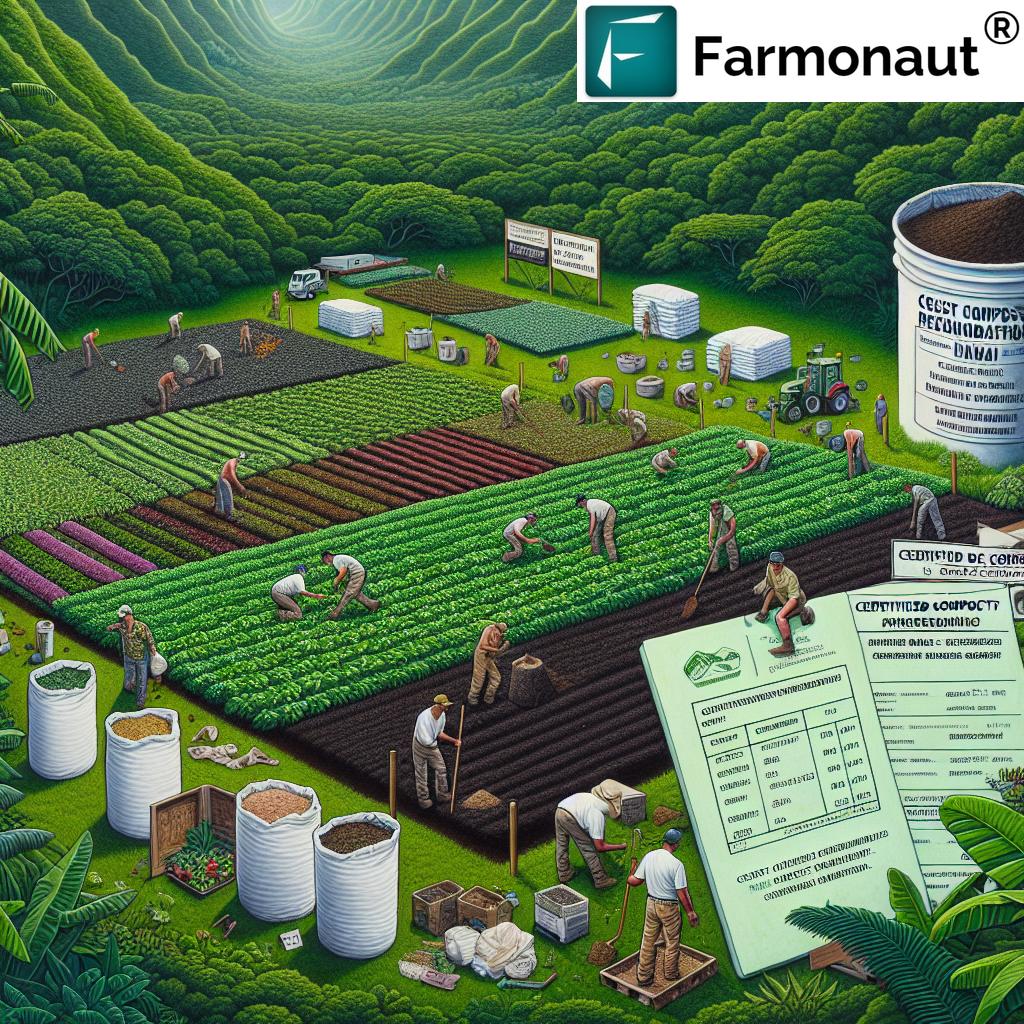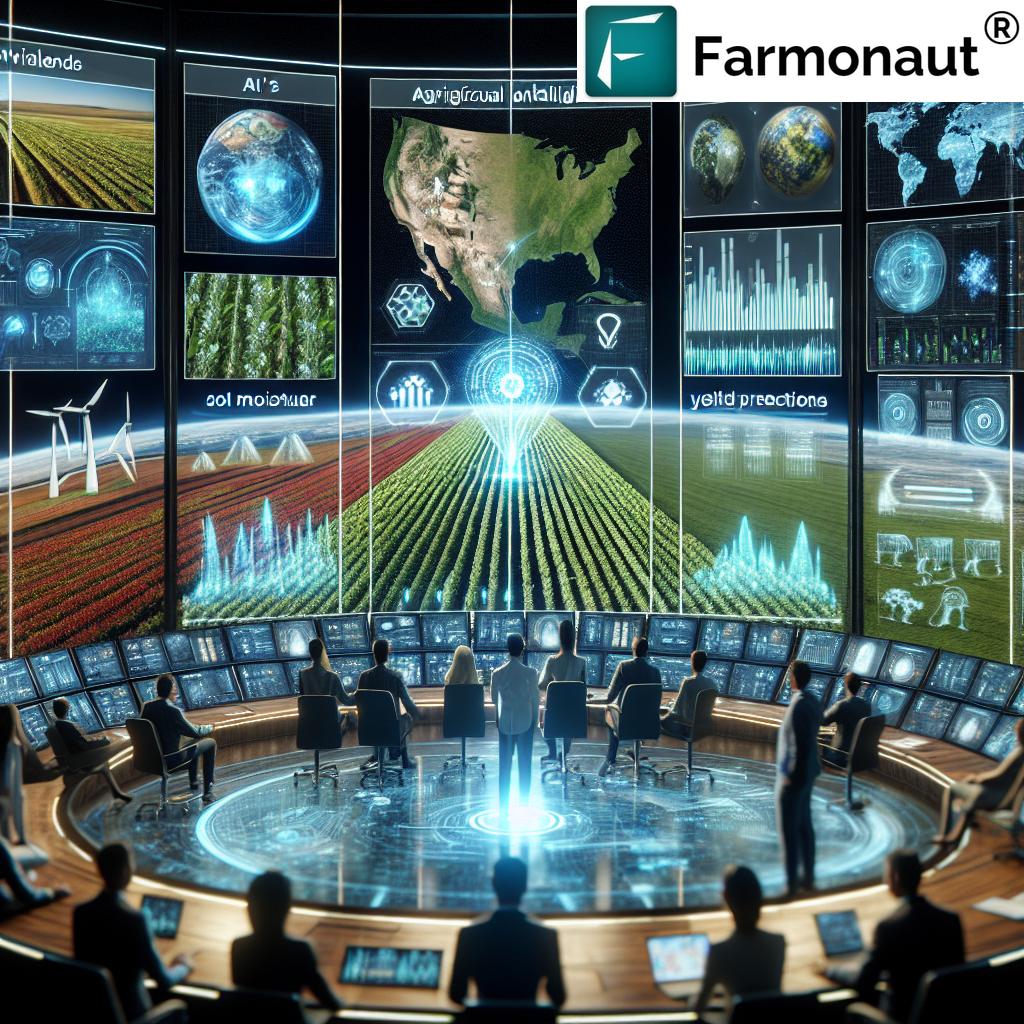Unlocking Minnesota’s Agricultural Future: Geopolitics and Rural Innovation Intersect at Landmark University Lecture
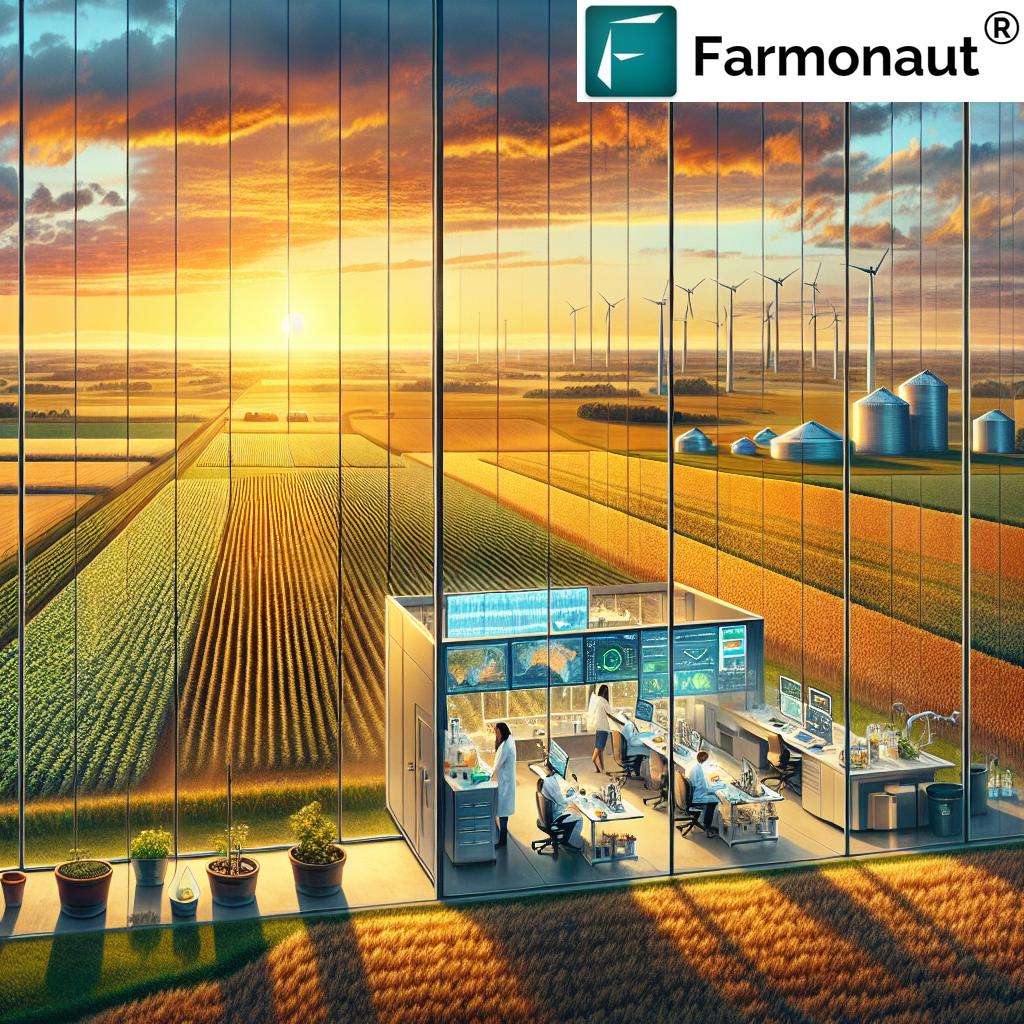
“Minnesota’s agricultural lecture series explores the impact of global events on local farming practices across 87 counties.”
In the heart of America’s heartland, a groundbreaking event is set to reshape our understanding of the intricate relationship between global geopolitics and local agriculture. We’re excited to announce the inaugural lecture of a new series at the University of Minnesota Crookston, aimed at exploring the dynamic intersection of geopolitics and agriculture. This landmark event, scheduled for December 5 at the Bede Ballroom, marks the beginning of a broader initiative to foster collaboration and innovation within the agricultural community in rural areas.
As we delve into this crucial topic, we recognize the significance of understanding how geopolitical changes can profoundly impact agricultural practices both locally in Minnesota and across the United States. Chancellor Mary Holz-Clause emphasizes the importance of this perspective, noting that events occurring on the global stage can send ripples through various sectors of our nation, directly affecting the agricultural domain.
The Bergland Legacy: Inspiring Future Generations
This lecture series is not just about current trends; it’s a tribute to a remarkable figure in Minnesota’s agricultural history. Named in honor of Bob Bergland, a notable state representative and former United States Secretary of Agriculture, the series carries forward a legacy of commitment to agricultural policy and rural development. Bergland’s extensive involvement in agricultural policy, including his membership on subcommittees related to conservation, livestock, and other vital agricultural sectors, continues to inspire future generations.
Following Bergland’s passing in 2018, his family expressed pride in having this series named after him, ensuring that his dedication to agriculture and rural communities lives on through education and innovation.
Geopolitics Meets Agriculture: A Global Perspective
The inaugural event will feature Jacob Shapiro, a leading expert in geopolitics and macro research. As the founder of Bespoke, a multi-family office addressing various aspects of finance and strategy, Shapiro brings a wealth of knowledge to the intersection of global politics and agriculture. His insights, shared through his popular podcast on geopolitics, agriculture, and technology, are highly anticipated by attendees and organizers alike.
Chancellor Holz-Clause noted Shapiro’s engaging speaking style and depth of knowledge, highlighting the importance of understanding how global events can impact local agricultural practices. This understanding is crucial for farmers, policymakers, and researchers alike as we navigate the complexities of modern agriculture in an increasingly interconnected world.
Collaborative Discussions: Shaping the Future of Agriculture
Following the lecture, attendees will have a unique opportunity to participate in breakout discussions focused on the future of agriculture. These sessions are designed to facilitate dialogue among participants, encouraging them to co-create new approaches and solutions that can positively impact their communities and the agricultural sector as a whole.
This collaborative approach aligns with the growing need for innovative solutions in agriculture, particularly in rural areas. By bringing together diverse perspectives, we aim to spark creativity and foster partnerships that can drive sustainable rural development and agricultural innovation.
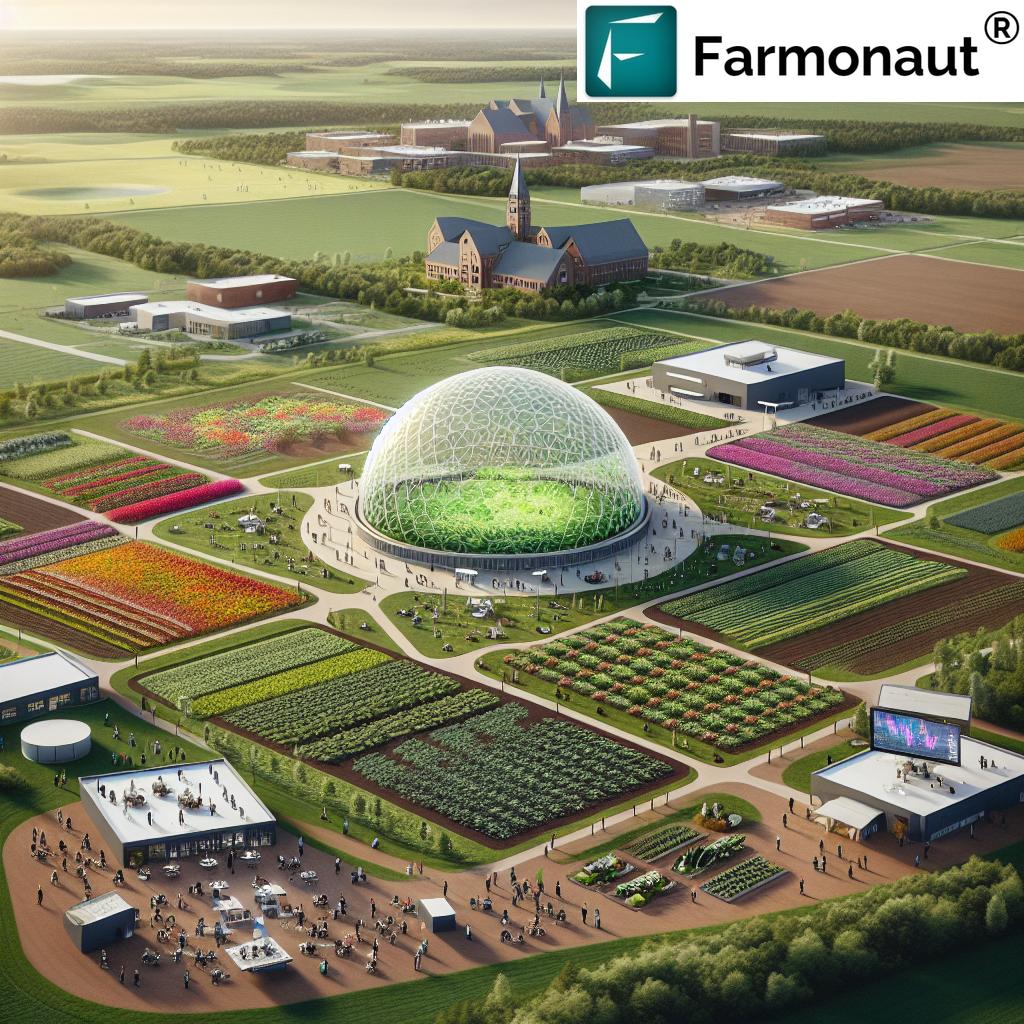
The Role of Technology in Agricultural Innovation
As we explore the future of farming technology, it’s essential to highlight the role of advanced tools and platforms in driving agricultural innovation. One such platform making waves in precision agriculture is Farmonaut. This cutting-edge agricultural technology company offers satellite-based farm management solutions that are accessible via Android, iOS, web/browser apps, and API.
Farmonaut’s mission aligns closely with the goals of this lecture series – to make precision agriculture affordable and accessible to farmers worldwide. By integrating innovative technology and data-driven insights into traditional farming practices, platforms like Farmonaut are at the forefront of rural agricultural innovation.
The platform offers valuable services such as real-time crop health monitoring, AI-based advisory systems, blockchain-based traceability, and resource management tools. These technologies are crucial in addressing the challenges faced by modern agriculture, particularly in rural areas where access to advanced farming techniques may be limited.
For those interested in exploring these technological solutions, Farmonaut offers several ways to access their services:
- Web App:

- Android App:

- iOS App:

- API Access: For developers and businesses looking to integrate Farmonaut’s satellite and weather data into their own systems, the company offers API access. Detailed documentation for developers can be found in the API Developer Docs.
Global Events and Their Impact on Minnesota Agriculture
To better understand the relationship between global geopolitical events and their effects on Minnesota’s agricultural sector, let’s examine a comparative table that illustrates this complex interplay:
| Global Event | Agricultural Impact | Rural Innovation Opportunity |
|---|---|---|
| US-China Trade Tensions | Decreased soybean exports, lower crop prices | Diversification of crops, exploration of new markets |
| Paris Climate Agreement | Pressure to reduce agricultural emissions | Adoption of sustainable farming practices, carbon sequestration techniques |
| Global Pandemic (e.g., COVID-19) | Disruption in supply chains, labor shortages | Automation in farming, local food systems development |
| European Union Agricultural Policies | Changes in global grain markets, affecting Minnesota exports | Precision agriculture to increase competitiveness |
| Middle East Oil Price Fluctuations | Impact on fuel and fertilizer costs for farmers | Investment in renewable energy sources for farms |
This table underscores the importance of understanding global dynamics in shaping local agricultural strategies. It also highlights the numerous opportunities for innovation that arise from these challenges, many of which can be addressed through the adoption of advanced technologies and sustainable practices.
The Intersection of Agricultural Policy and Conservation
One of the key themes that will be explored in the lecture series is the delicate balance between agricultural policy and conservation efforts. Minnesota, with its rich agricultural heritage and diverse ecosystems, stands at the forefront of this intersection.
Agricultural policy plays a crucial role in shaping farming practices, influencing everything from crop choices to land use. At the same time, conservation efforts are essential for preserving Minnesota’s natural resources and ensuring the long-term sustainability of its agricultural sector.
Some key areas where agricultural policy and conservation intersect include:
- Soil conservation practices
- Water quality management
- Wildlife habitat preservation
- Sustainable land use planning
- Climate change mitigation strategies
By addressing these areas, policymakers and farmers can work together to create a more resilient and sustainable agricultural ecosystem in Minnesota.
Sustainable Rural Development: A Holistic Approach
“The inaugural event features expert discussions on agricultural policy affecting over 68,000 farms in Minnesota.”
Sustainable rural development is a critical component of Minnesota’s agricultural future. It encompasses not just farming practices, but also the overall well-being of rural communities. The lecture series aims to explore various aspects of sustainable rural development, including:
- Economic diversification in rural areas
- Infrastructure development to support agricultural innovation
- Education and skill development for the next generation of farmers
- Healthcare access in rural communities
- Technological integration in rural lifestyles
By taking a holistic approach to rural development, we can ensure that Minnesota’s agricultural communities thrive in the face of global changes and technological advancements.
Agricultural Community Collaboration: Building Stronger Networks
One of the primary goals of this lecture series is to foster collaboration within the agricultural community. In an era where global events can have far-reaching impacts on local farming practices, building strong networks and sharing knowledge is more important than ever.
Collaboration can take many forms, including:
- Farmer-to-farmer knowledge exchange
- Partnerships between universities and agricultural businesses
- Cooperative efforts in research and development
- Community-supported agriculture initiatives
- Cross-sector collaborations (e.g., agriculture and technology)
By encouraging these collaborative efforts, we can create a more resilient and innovative agricultural sector in Minnesota and beyond.
Global Impacts on Local Agriculture: Navigating Challenges
Understanding the global impacts on local agriculture is crucial for farmers and policymakers alike. The lecture series will delve into how international events and trends affect Minnesota’s agricultural landscape. Some key areas of focus include:
- International trade agreements and their impact on crop prices
- Global climate change and its effects on local weather patterns
- Technological advancements in agriculture from around the world
- Shifts in global consumer preferences and dietary trends
- International labor movements and their impact on farm workforces
By gaining insights into these global influences, Minnesota’s agricultural community can better prepare for future challenges and opportunities.
Agritech Solutions for Rural Areas: Bridging the Technology Gap
The adoption of agritech solutions in rural areas is a key focus of the lecture series. These technologies have the potential to revolutionize farming practices, increase efficiency, and improve sustainability. Some of the agritech solutions that will be discussed include:
- Precision agriculture techniques
- Internet of Things (IoT) devices for farm management
- Artificial Intelligence and Machine Learning in crop prediction
- Drone technology for crop monitoring and spraying
- Blockchain for supply chain transparency
Platforms like Farmonaut are at the forefront of bringing these technologies to rural areas, making them accessible and affordable for farmers of all scales.
Precision Agriculture Advancements: The Future of Farming
Precision agriculture is rapidly evolving, offering new ways to optimize farm operations and increase yields while minimizing environmental impact. The lecture series will explore the latest advancements in this field, including:
- Satellite-based crop monitoring systems
- Variable rate technology for fertilizer and pesticide application
- Automated irrigation systems
- Soil sensors and weather stations for data-driven decision making
- GPS-guided machinery for precise planting and harvesting
These advancements are not just theoretical; they’re being implemented in farms across Minnesota and the world, changing the face of agriculture as we know it.
Agricultural Research and Education: Driving Progress
The role of agricultural research and education in driving progress cannot be overstated. The University of Minnesota Crookston, through initiatives like this lecture series, plays a crucial role in advancing agricultural knowledge and practices. Key areas of focus in agricultural research and education include:
- Crop genetics and breeding for resilience
- Sustainable farming practices
- Agricultural economics and market analysis
- Food safety and quality control
- Agricultural technology development and implementation
By investing in research and education, we ensure that Minnesota’s agricultural sector remains at the forefront of innovation and sustainability.
Conclusion: Embracing the Future of Agriculture in Minnesota
As we look forward to the inaugural lecture of this groundbreaking series, we’re reminded of the immense potential that lies at the intersection of geopolitics and agriculture. By bringing together experts, farmers, policymakers, and innovators, we’re creating a platform for meaningful dialogue and actionable insights.
The future of agriculture in Minnesota is bright, filled with opportunities for innovation, collaboration, and sustainable growth. As we navigate the complexities of global influences on local farming practices, we’re not just adapting to change – we’re actively shaping the future of agriculture.
We encourage all those interested in the future of farming, rural development, and agricultural innovation to attend this landmark event. Together, we can unlock Minnesota’s agricultural future and set a precedent for sustainable, technology-driven farming practices that benefit our communities and the world at large.
Farmonaut Subscriptions
Frequently Asked Questions
- What is the main focus of the University of Minnesota Crookston’s new lecture series?
The series focuses on exploring the intersection of geopolitics and agriculture, highlighting how global events impact local farming practices in Minnesota and across the United States. - Who is Bob Bergland, and why is the lecture series named after him?
Bob Bergland was a notable figure in Minnesota’s agricultural history, serving as a state representative and the United States Secretary of Agriculture. The series is named in his honor to continue his legacy of commitment to agricultural policy and rural development. - What topics will be covered in the inaugural lecture?
The inaugural lecture will cover the impact of global geopolitical events on local agriculture, agricultural policy, conservation efforts, and opportunities for rural innovation. - How can attendees participate in the event beyond listening to the lecture?
Following the main lecture, attendees can participate in breakout discussions focused on the future of agriculture, allowing them to engage in dialogue and co-create new approaches to agricultural challenges. - What role does technology play in the future of agriculture, as discussed in the lecture series?
Technology plays a crucial role in agricultural innovation, with platforms like Farmonaut offering satellite-based farm management solutions that make precision agriculture more accessible and affordable for farmers. - How does the lecture series address the balance between agricultural policy and conservation?
The series explores the intersection of agricultural policy and conservation efforts, discussing topics such as soil conservation, water quality management, and sustainable land use planning. - What opportunities for collaboration does the lecture series aim to create?
The series aims to foster collaboration within the agricultural community, encouraging partnerships between farmers, universities, businesses, and technology providers to drive innovation and sustainable practices.





